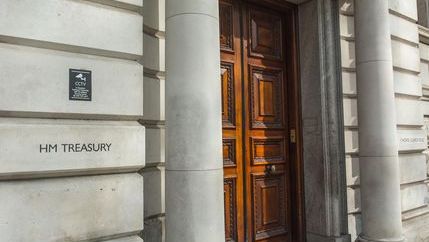
A cross-border approach to tackling the risks is essential. A European Commission study in 2021 estimated that EUR 1.4 trillion is held in offshore real estate by EU residents, with the UK identified as one of the top five countries used for storing wealth to evade tax.
The money laundering threat is significant
The high value of property and the size of the market in the UK make it attractive for criminals, as extremely large amounts of money can be laundered through single transactions.
Both small and large agencies working in sales, lettings, auctions, and high-value dealing are potential targets for criminal activity. While the property sector remains largely unregulated in the UK and many European countries, the industry is vulnerable.
Property bought with laundered money often sits empty, taking homes out of the market and having a further negative impact on the wider community.
Agents play a substantial role in facilitating property transactions and they should be regulated, including qualification and CPD requirements, to ensure that housing sector professionals are more able to identify money laundering risks.
Clear records of property ownership are essential
To maintain integrity in the housing market it is vital to know who the ultimate owner of a property is. Complex financing methods, intermediation, and the use of corporate vehicles pose challenges to the identification of beneficial ownership.
In March 2022, the Economic Crime (Transparency and Enforcement) Act introduced powers for the UK Government to create a public register of the beneficial owners of overseas entities that own property or land in the UK.2
The UK’s Overseas Territories and Crown Dependencies must open their registers of beneficial ownership. This would allow property agents to know who is behind companies.
To further enhance action against economic crime the Beneficial Ownership Registers Interconnection System should be better utilised to coordinate information, ensure national databases are up to date, and reduce access costs. This system can then be linked to other Beneficial Ownership Registers in countries outside of the European Union including the UK.
A mistake to overlook lettings
The decision not to extend the Money Laundering Regulations to include all lettings activity leaves the property sector vulnerable to criminal activity.
The size of the private rented sector has grown in the UK over the last 15 years, with the English Housing Survey 2019-20 recording it as making up 19% of all households. In the EU, 31% of the population lived in rented housing in 2022.
Letting agents commonly hold a significant amount of money from deposits, rents, and service charges, which offer frequent opportunities for cash payments to be made. In one case that Propertymark is aware of, a tenant claimed to be unable to pay through a bank account but instead offered to pay 12 months’ rent in cash, totalling £26,000.
Letting agents in England must carry out Right to Rent checks but they have no statutory obligation to carry out Customer Due Diligence. In circumstances as outlined above, a letting agent would not be committing a criminal offence by not submitting a Suspicious Activity Report.
Reporting and enforcement
A simplified route for estate agents when making a report would be more helpful, including a standard form for reporting. Property transactions are fast-moving, and agents need a quick response when reports have been submitted.
Propertymark believes the names of those convicted of money laundering and other economic crimes should be made public. This would help property agents carry out enhanced checks on these individuals to mitigate the higher risk they pose.
We also recommend that any fines given to organisations or individuals who have been found guilty of economic crime should be made public and widely circulated.






